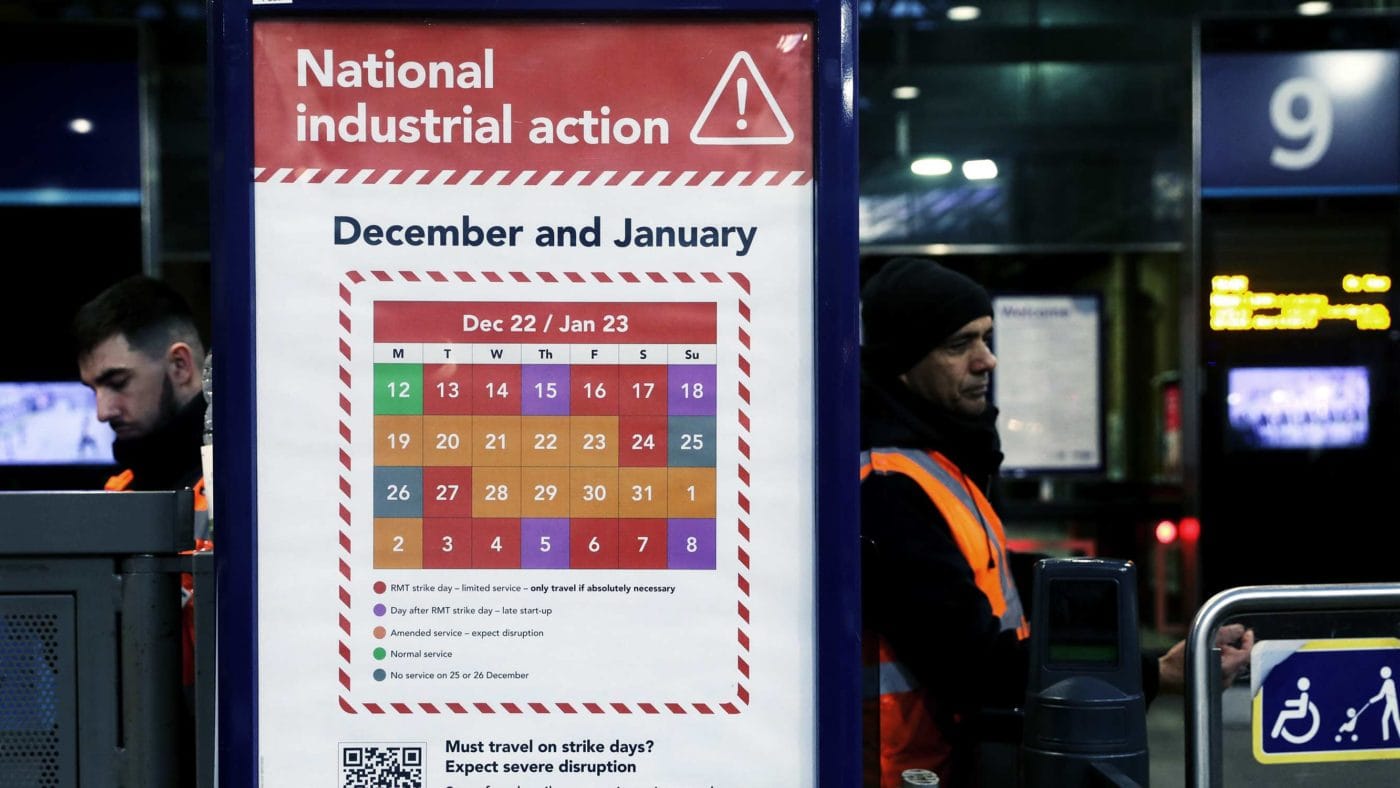According to today’s papers, Rishi Sunak will soon announce new measures to limit the kind of strikes that have caused such sustained disruption in recent weeks. The centrepiece of his plan is a proposal to ensure minimum service levels in the health, rail, education, fire and border security sectors.
You may feel that a variation on these proposals has been announced as many times as the Second Coming, with as little result. The important difference is that previous iterations have been confined to the transport sector – this one is altogether broader.
To recap, a plan to curtail strikes was included in the 2019 manifesto, it was repeatedly threatened by former Transport Secretary Grant Shapps, while Liz Truss made it one of her promises for her first 30 days in office. Her Transport Secretary barely outlived a fruit fly, but Anne-Marie Trevelyan did manage to release a draft bill in October.
This would have required ‘relevant employers and trade unions’ – nominated by the Secretary of State, and expected to cover rail, tubes, buses and probably airlines – to negotiate arrangements to provide a basic level of service in disputes.
Failure to agree would mean that the Central Arbitration Committee (an obscure and top-heavy body hitherto mainly concerned with trade union recognition) could determine the minimum service level. Failing that, the Secretary of State could set interim levels of service subject to agreement by both Houses of Parliament.
How would this work? On the railways it would involve at least three unions (ASLEF, RMT and TSSA) being involved, as their responsibilities (and disputes) overlap. It would have to cover 15 former passenger franchises, several Open Access passenger operators, the (usually forgotten) freight companies, metropolitan authorities with responsibility for rail services and Network Rail. There may be other organisations that have slipped from my radar, but that’s enough to be going on with.
If anything could ever be agreed within this talkathon, it’s doubtful that the public would be any happier than they are with the current set-up during strikes.
Some trains have been running during the recent RMT disputes. Sure, a minimum service agreement might add a few more, but it is unlikely to provide a useful service on a complex network where people have to make changes during journeys. It might provide half a dozen trains a day from London to York, say, but if you wanted to go on from there to Scarborough or Harrogate you’d probably not be able to do it in reasonable time – and certainly not get there and back in a day, as you normally can.
And could it really be imposed? A detailed agreement would necessarily require particular individuals – drivers familiar with a route, signallers with particular expertise – to be required to work. What if that individual refused to work because he or she was on strike? It would seem that the union would be obliged to sanction the individual or face fines. Good luck with that.
The plans would undoubtedly face legal challenge, as left-wing lawyers have made clear. These could drag on for years.
As Ms Trevelyan noted in her introduction to the proposed bill, similar laws are already in operation in other countries, including Spain, France and Italy.
But while such legislation does exist, it seems a fair bit simpler than what has been proposed for the UK. More to the point, there is very little evidence on its effectiveness in practice. In France, the 2007 legislation does not seem to have been used. In Italy it appears to have been ineffective, in that breaches of the rules do not seem to have led to penalties. In Spain, Ryanair workers continued their strikes for several months despite the government having used their powers to impose minimum requirements covering between 65% and 85% of services.
The extension of the proposed UK legislation to other areas raises further problems. Does the Government really want unions having a major say in priorities for health service cover, or for border security? And in education it is surely not worth the hassle for unions which are paper tigers.
Many people will be pleased to see the Government showing some resolve in relation to the continuing public sector and quasi-public sector disputes. The costs of acquiescing to union demands, both in relation to pay and resistance to reform of working practices, would be considerable and long-lasting.
However, putting reliance on minimum service agreements as the answer may be a mistaken strategy. The Government would likely get bogged down in legal challenges and would certainly face great difficulties in reaching acceptable levels of provision during strikes.
In emergency services in particular, it would be simpler and probably more effective simply to ban strikes outright, or impose compulsory arbitration. In other areas such as rail and Royal Mail it might make more sense just to let the unions run themselves into the ground and face the consequences in terms of job losses and service cuts.
Click here to subscribe to our daily briefing – the best pieces from CapX and across the web.
CapX depends on the generosity of its readers. If you value what we do, please consider making a donation.


